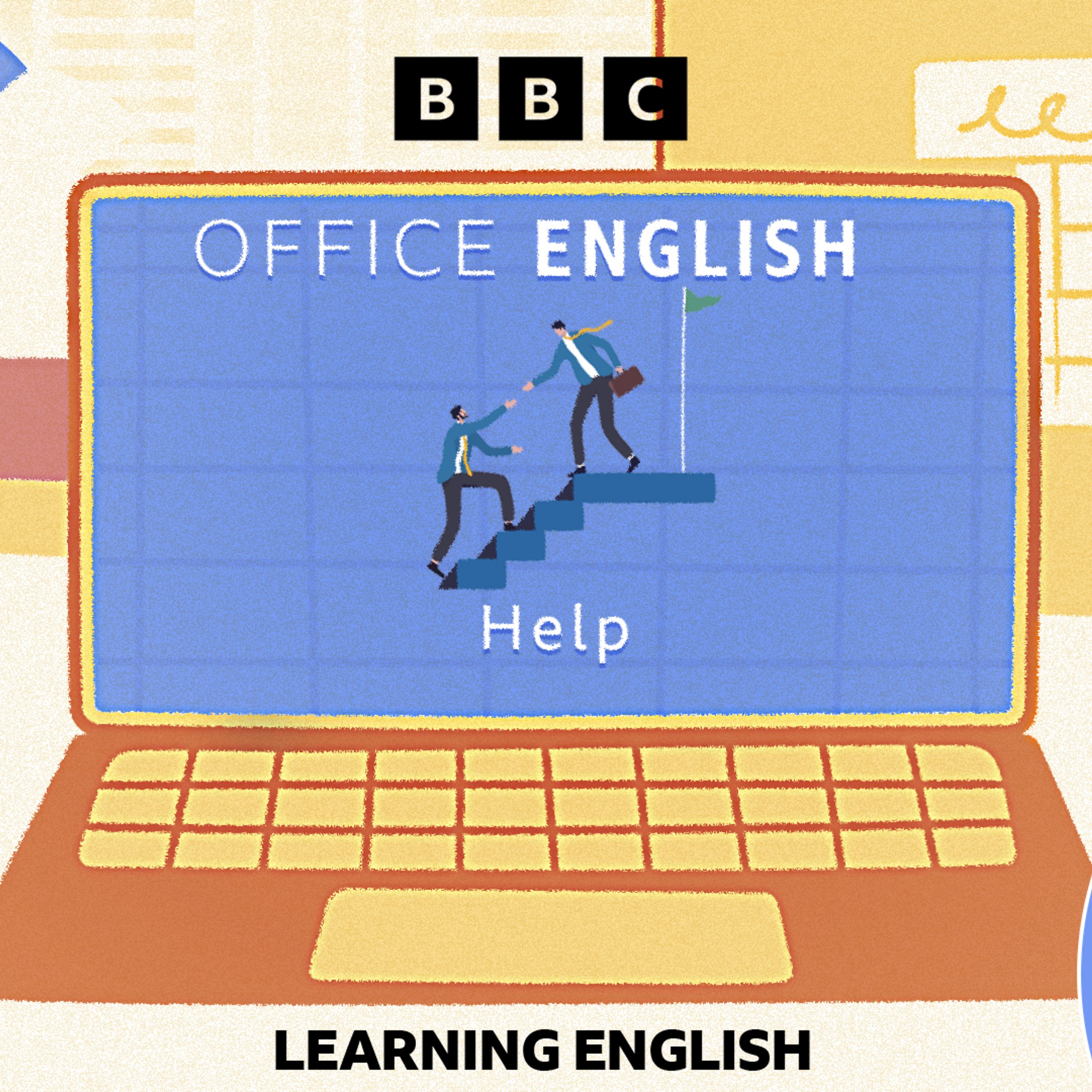
Deep Dive
Shownotes Transcript
Thanks for listening to Learning English for Work. Did you know we have a BBC Learning English email newsletter? Subscribe for our latest lessons, worksheets and quizzes and weekly tips to help you study. Just search BBC Learning English newsletter or follow the link in the notes for this programme. Do you worry about asking for help at work? Nobody likes to keep asking how to do something so you can end up feeling a bit stupid really.
I actually don't feel worried to ask for help because my teammates are very helpful and approachable. If it's something new and I've just started a company, I don't mind asking for help. But if it's something that I feel like I should know how to do already, then I do feel a little bit nervous about asking for help. In this episode of Office English, we're talking about asking for help and offering to help other people.
Hello and welcome to Office English. In this podcast, we talk about the difficult situations you might face at work and some language you can use to help. I'm Phil. And I'm Pippa. You can find a transcript for this episode to read along on our website, bbclearningenglish.com.
We heard from some BBC colleagues at the start of the programme about asking for help. Some people don't mind, but some people worry about it. What about you, Pippa? I think I don't mind asking for help...
if I really need it but I do have a tendency to just try and do everything myself and not ask for help until it's a bit late. I'm always just worried that I'm annoying people but really I shouldn't worry about that because usually people are happy to help you if it's a genuine need, if you're not asking all the time. Yeah I think I'm similar, I perhaps try and do too much myself when I should ask for help but
I actually think a lot depends on who you ask for help as well. Some people are easier than others. Yeah, some people are more happy to help or even if they're too busy to help you, they say so in quite a polite way. They don't make you feel bad about asking. But in this episode, we'll be talking about some ways that you can ask for help and how you can offer to help other people in a polite and professional way.
OK, let's start with asking for help. Pippa, imagine you're at work and you need some help with your work. Maybe it's a task you aren't that familiar with, or maybe something's gone wrong and you're not sure why.
What can you say? Well, as is a classic way for me to start saying anything, I'd probably start by apologising. So I might say, sorry to bother you, but would you mind helping me for a moment? So I'm just showing that I am considerate of the other person's time. Here's an expression that I love. You can say, I think I need another pair of eyes on this. It just means, could you have a look for me? It's like, can you use your eyes to help?
Yes. And another way you could phrase it is to say, have you got a second to help me out? I'm having some trouble with this. So it's probably going to take them more than a second, but you're just being kind of informal and polite. Maybe some things that you should consider before asking for help is, can you find out the answer easily without asking? Yes, absolutely.
Search engines are your friend. You don't want to be constantly asking people small things. You want to save asking for help for when you really need it.
You could also think about who you're asking and how formal you need to be. So some of the phrases that we discussed are more informal. So have you got a second? That's an informal way to ask. But to say sorry to bother you, would you mind helping me for a moment? That's quite formal. And you could ask your boss that if it's appropriate.
Something to remember is that when someone is explaining something to you and giving you some help, do you try to make some notes so you don't have to go back and ask them the same thing again? Yes, obviously double check something if you're not sure, even if it's been explained to you. But people tend to get annoyed if you keep asking for help on the same thing and you don't understand or you're not listening properly when they explain it to you.
Another thing you might want to think about when you're deciding whether to ask for help is how important is it that you get what you're doing exactly right? In some jobs, there might be a really, really critical task that if you get it wrong would be a disaster. And so then you might want to definitely check that you're doing it right. OK, so we've covered asking for help, but what about offering to help? Maybe you've noticed that a colleague looks stressed or is falling behind and you want to help them.
How can you do this without making them feel bad or awkward, Phil? Remember, usually people are grateful for help. But in some situations, offering to help might be seen as you telling them that they're doing a bad job. So try to be friendly and polite. And...
If someone says they don't want your help, maybe don't insist. Yeah. Also think about your working culture. So in some companies, decisions about who is doing what are made by bosses. So you wouldn't have the flexibility to say, oh, I have some spare time, so I'll help fill out. You need to kind of ask your boss or wait for your boss to tell you that you should help them. Yeah. And some language that might be useful if you want to offer to help someone is,
Are you all right? Is there anything I can help with? Yes, or you could sort of phrase it from your perspective and say, I have some free time and you seem to have a lot on at the moment. Is there anything that I can take off your hands? That means, is there anything that I can do for you? Another expression you can say,
Did you want me to take care of whatever for you so you can focus on something else? Take care of here just means do. Yes, a colleague of ours actually offered to do that for me the other day and it was so helpful. I was so grateful that she'd noticed that I was a little bit stressed. So I think it's always nice to offer to help if you can, if you have the time and you do it politely. Usually people are quite grateful. Now let's think about another tricky situation.
One of your colleagues has asked for your help, but you don't have time to help them. How do you say no politely? Well, again, I might start with an apology. So I might say, I'm sorry, I just have to focus on this at the moment. Why don't you try and give them maybe a little bit of advice or suggest somebody else that they could ask? Another way is you could ask about deadlines. You could say, can it wait until later? I'd love to help.
but I have a few other things I need to sort out. Yeah, that's a really polite way of talking about it. You could be a little bit more direct. So you could just say, I'm really busy today, so I don't think I'll be much help to you. Have you asked somebody else and maybe suggest somebody else that might be able to help them? And of course, remember, every workplace is different. So if
It might not be up to you to decide which task is more important. It could be up to your boss. Yeah, in which case you could just say, oh, let's ask our boss and decide, you know, what we should work on together. Then you're kind of not saying no straight away.
That's it for this episode of Office English. Find more episodes of the podcast on our website, bbclearningenglish.com. Next week, we'll be talking about logistics. That's organising things at work. Bye for now. Bye.
